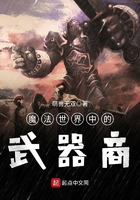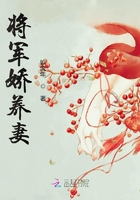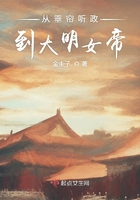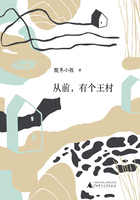3. The things are three of which thou art composed, a little body, a little breath [life], intelligence. Of these the first two are thine, so far as it is thy duty to take care of them; but the third alone is properly thine. Therefore, if thou shalt separate from thyself, that is, from thy understanding, whatever others do or say, and whatever thou hast done or said thyself, and whatever future things trouble thee because they may happen, and whatever in the body which envelops thee, or in the breath [life], which is by nature associated with the body, is attached to thee independent of thy will, and whatever the external circumfluent vortex whirls round, so that the intellectual power exempt from the things of fate can live pure and free by itself, doing what is just and accepting what happens and saying the truth: if thou wilt separate, I say, from this ruling faculty the things which are attached to it by the impressions of sense, and the things of time to come and of time that is past, and wilt make thyself like Empedocles’ sphere,— 3 All round, and in its joyous rest reposing; 4 and if thou shalt strive to live only what is really thy life, that is, the present, then thou wilt be able to pass that portion of life which remains for thee up to the time of thy death, free from perturbations, nobly, and obedient to thy own daemon [to the god that is within thee] (ii. 13, 17, iii. 5, 6; xi. 12).
4. I have often wondered how it is that every man loves himself more than all the rest of men, but yet sets less value on his own opinion of himself than on the opinion of others. If then a god or a wise teacher should present himself to a man and bid him to think of nothing and to design nothing which he would not express as soon as he conceived it, he could not endure it even for a single day. So much more respect have we to what our neighbours shall think of us than to what we shall think of ourselves.
5. How can it be that the gods after having arranged all things well and benevolently for mankind, have overlooked this alone, that some men and very good men, and men who, as we may say, have had most communion with the divinity, and through pious acts and religious observances have been most intimate with the divinity, when they have once died should never exist again, but should be completely extinguished?
But if this is so, be assured that if it ought to have been otherwise, the gods would have done it. For if it were just, it would also be possible; and if it were according to nature, nature would have had it so. But because it is not so, if in fact it is not so, be thou convinced that it ought not to have been so:- for thou seest even of thyself that in this inquiry thou art disputing with the diety; and we should not thus dispute with the gods, unless they were most excellent and most just;- but if this is so, they would not have allowed anything in the ordering of the universe to be neglected unjustly and irrationally.
6.Practise thyself even in the things which thou despairest of accomplishing. For even the left hand, which is ineffectual for all other things for want of practice, holds the bridle more vigorously than the right hand; for it has been practised in this.
7.Consider in what condition both in body and soul a man should be when he is overtaken by death; and consider the shortness of life, the boundless abyss of time past and future, the feebleness of all matter.
8.Contemplate the formative principles (forms) of things bare of their coverings; the purposes of actions; consider what pain is, what pleasure is, and death, and fame; who is to himself the cause of his uneasiness; how no man is hindered by another; that everything is opinion.
9.In the application of thy principles thou must be like the pancratiast, not like the gladiator; for the gladiator lets fall the sword which he uses and is killed; but the other always has his hand, and needs to do nothing else than use it.
10.See what things are in themselves, dividing them into matter, form and purpose.
11.What a power man has to do nothing except what God will approve, and to accept all that God may give him.
12.With respect to that which happens conformably to nature, we ought to blame neither gods, for they do nothing wrong either voluntarily or involuntarily, nor men, for they do nothing wrong except involuntarily. Consequently we should blame nobody.
13.How ridiculous and what a stranger he is who is surprised at anything which happens in life.
14. Either there is a fatal necessity and invincible order, or a kind Providence, or a confusion without a purpose and without a director (Book IV). If then there is an invincible necessity, why dost thou resist? But if there is a Providence which allows itself to be propitiated, make thyself worthy of the help of the divinity. But if there is a confusion without governor, be content that in such a tempest thou hast in thyself a certain ruling intelligence. And even if the tempest carry thee away, let it carry away the poor flesh, the poor breath, everything else; for the intelligence at least it will not carry away.
15. Does the light of the lamp shine without losing its splendour until it is extinguished; and shall the truth which is in thee and justice and temperance be extinguished before thy death?
16.When a man has presented the appearance of having done wrong, say, How then do I know if this is a wrongful act? And even if he has done wrong, how do I know that he has not condemned himself? and so this is like tearing his own face. Consider that he, who would not have the bad man do wrong, is like the man who would not have the fig-tree to bear juice in the figs and infants to cry and the horse to neigh, and whatever else must of necessity be. For what must a man do who has such a character? If then thou art irritable, cure this man"s disposition.
17. If it is not right, do not do it: if it is not true, do not say it. For let thy efforts be-
18.In everything always observe what the thing is which produces for thee an appearance, and resolve it by dividing it into the formal, the material, the purpose, and the time within which it must end.













